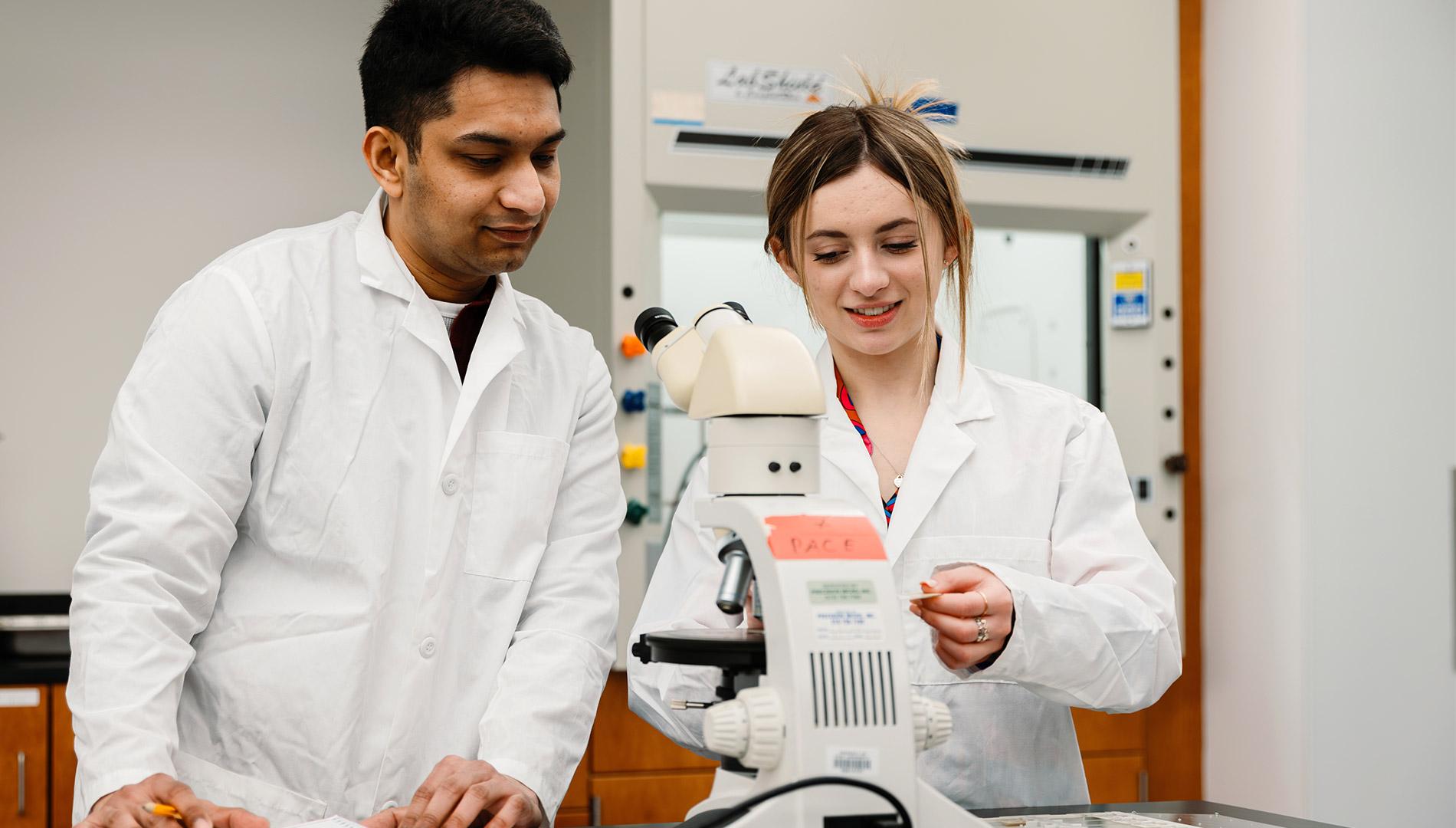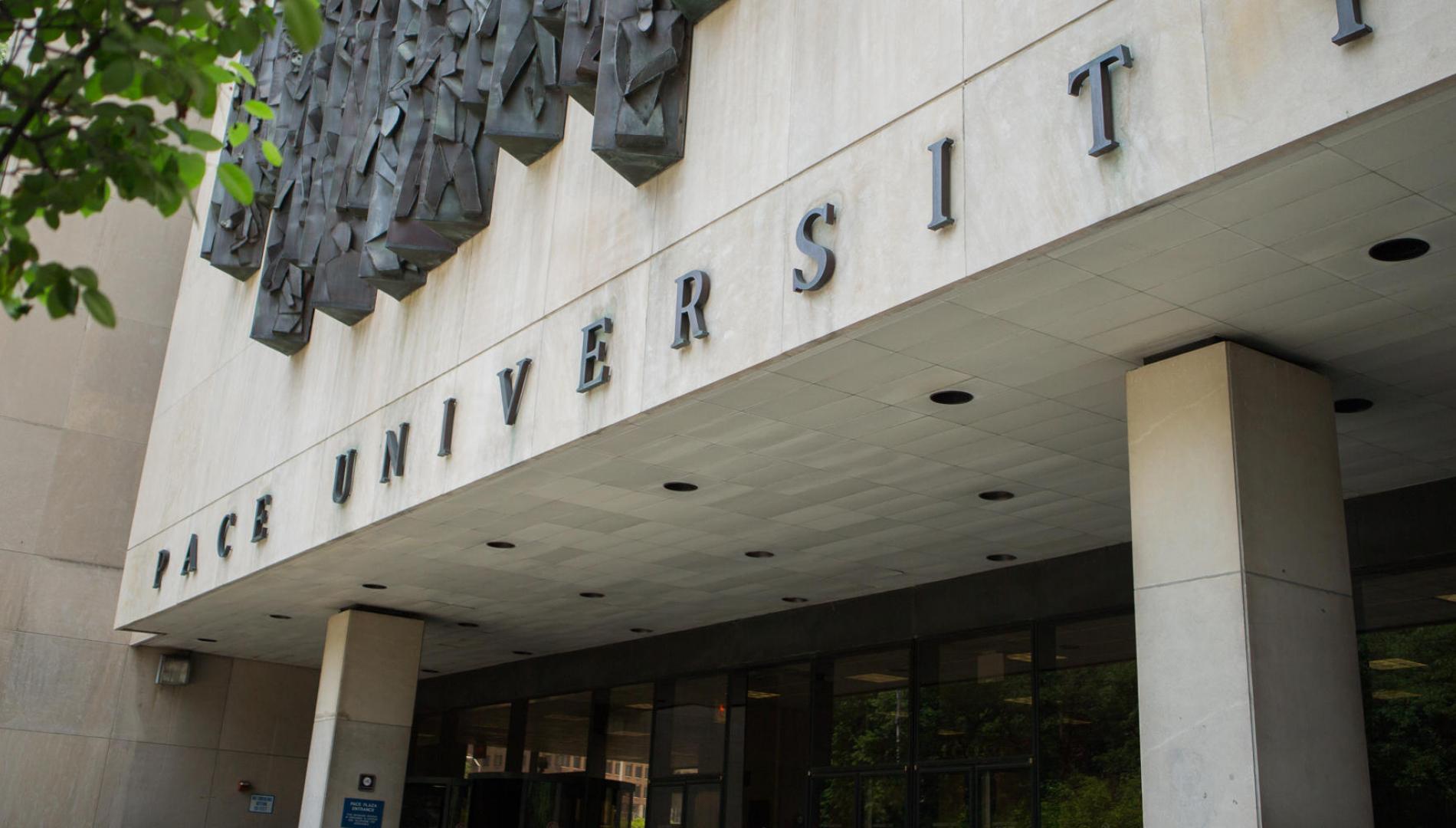
MS IN BIOCHEMISTRY AND MOLECULAR BIOLOGY
We’ll connect you with an advisor to help explore your academic and professional opportunities with the MS in Biochemistry and Molecular Biology.
The Master of Science in Biochemistry and Molecular Biology from the Dyson College of Arts and Sciences equips you with advanced training in cellular processes and cutting-edge biotechnology. This biochemistry master’s degree enables you to conduct thesis-based research in fully equipped labs and prepare for careers in pharmaceuticals, biomedical research, or continued PhD or MD study.
Program highlights:
- 34-credit, thesis-based degree; start in Fall or Spring and complete in as little as three semesters
- Located in the heart of New York City with networking opportunities across the biomedical field
- In-depth coursework in proteomics, genomics, DNA technology, and cell signaling
- Hands-on experience with access to cutting-edge labs and state-of-the-art instrumentation
- Prepares students for roles in biotech, research, teaching, or doctoral study
- Badged internship and career success programs are available for international and domestic students
- Small classes and close faculty mentorship in research and career planning
Where can Pace’s MS in Biochemistry and Molecular Biology take you?
Medical Research Laboratories: All research and teaching laboratories are required to employ a graduate laboratory supervisor to oversee the facility.
Government Agencies: The National Institutes of Health, US Food and Drug Administration, Environmental Protection Agency, US Department of Agriculture, and individual state laboratories employ skilled personnel for basic research and analysis of food, drugs, air, water, wastes, and animal tissue samples.
Biotechnology: The field offers excellent career opportunities for people trained in the molecular life sciences, with opportunities across a spectrum of many industries:
- Agricultural feedstock and chemicals
- Drugs and pharmaceuticals
- Medical devices and equipment
- Research, testing, and medical laboratories
Non-Traditional Careers: Biochemists and molecular biologists enjoy fulfilling careers in management, science policy, science writing, and medical illustration.
Education: Science teachers with molecular life science degrees are in high demand at junior high and high schools.

The Master of Science in Biochemistry and Molecular Biology is a 34-credit, thesis-based graduate degree completed in three semesters. Most students continue on to a PhD or MD degree. Our program offers the Opportunity for students to pursue research on a variety of topics at Pace University, the Department of Neuronal Cell Signaling at Weill Cornell Medical College, or the University of Technology Sydney.
– Nigel Yarlett, PhD - Program Director
About Dyson College of Arts and Sciences
Dyson College at Pace University offers the resources and caliber of faculty that you would expect at a large university, while providing the close personal attention associated with a small college experience. Dyson currently has 1,155 enrolled graduate students in programs spanning the arts, humanities, and natural, social and health sciences. In small classes taught by caring faculty who are active practitioners in their fields, Dyson offers innovative programs at convenient locations in New York City and Westchester.